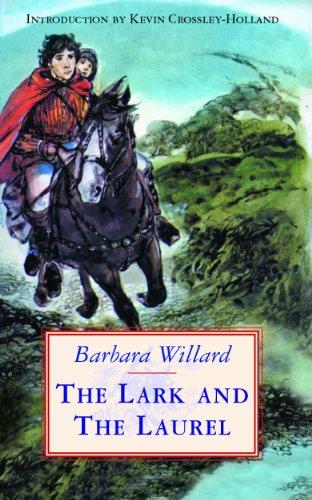The Lark and the Laurel
1485. The Wars of the Roses are over and Henry Tudor is on the throne. The defeated Yorkist, Sir Thomas Jolland, on his way to exile in France, dumps his 15-year-old pampered daughter, Cecily, on his estranged sister at Mantlemass Manor in the Sussex Weald. The formidable Dame Elizabeth FitzEdmund runs her manor with energy and efficiency – and she has plans for Cecily.
Life for a 15th century lady was bleak. Cecily has no independent legal status; she can be married off or sent to a nunnery at her father’s whim. She has been brought up to be a useless ornament, never allowed out without a maid and expected to do nothing for herself.
Life at Mantlemass comes as a shock. At first, Cecily is furious at being expected to dress herself and help with various homely tasks such as churning butter, but gradually, she toughens up, learns a host of new skills, and relishes her new freedom. She meets Lewis Mallory, who lives in the nearby grange, and a new future beckons. But Lewis has his own family secrets and his future is uncertain. When Sir Thomas returns, Cecily realizes that she is simply a pawn in her father’s ruthless ambition for social advancement. Her personal happiness is of no account at all…
First published in 1970, this book is about growing up and becoming your own person, about identity, secrets and betrayal. Cecily’s problems are very real and we feel both with her and for her. Life in the Sussex Weald is vividly drawn and genuinely 15th century. There are no anachronisms here. I’d have loved it as a child. A modern child, however, might feel there’s too much narrative and description and not enough action. It would be their loss. Thoroughly recommended.
Elizabeth Hawksley
I immediately liked this book because it plunges straight into the main character, Cecily, being abandoned at her aunt’s house, and horrified by it, so the reader is involved and caught up in Cecily’s emotions from the first paragraph. The setting, the defeat of Richard III by Henry Tudor, is explained easily and in an interesting way which relates to the characters and explains the urgency of the first scene. This event, for Cecily, also has the effect of showing people close to her in a new light, as selfish, even threatening. This theme of betrayal, repeated through out the book, is very interesting.
The thing that I couldn’t really get to grips with were some of the characters. I liked Cecily’s aunt, a very strong, clever character, and it was effective to show her as strong at the same time as showing her loneliness and her need for other people, like Cecily. This made her a more sympathetic character. However, I found Cecily uninteresting, which made some parts of the book, such as the love story between her and Lewis, boring. Overall, however, I thought that much of the book was enjoyable, and the historical details and setting were engrossing.
Ella McNulty, age 15










